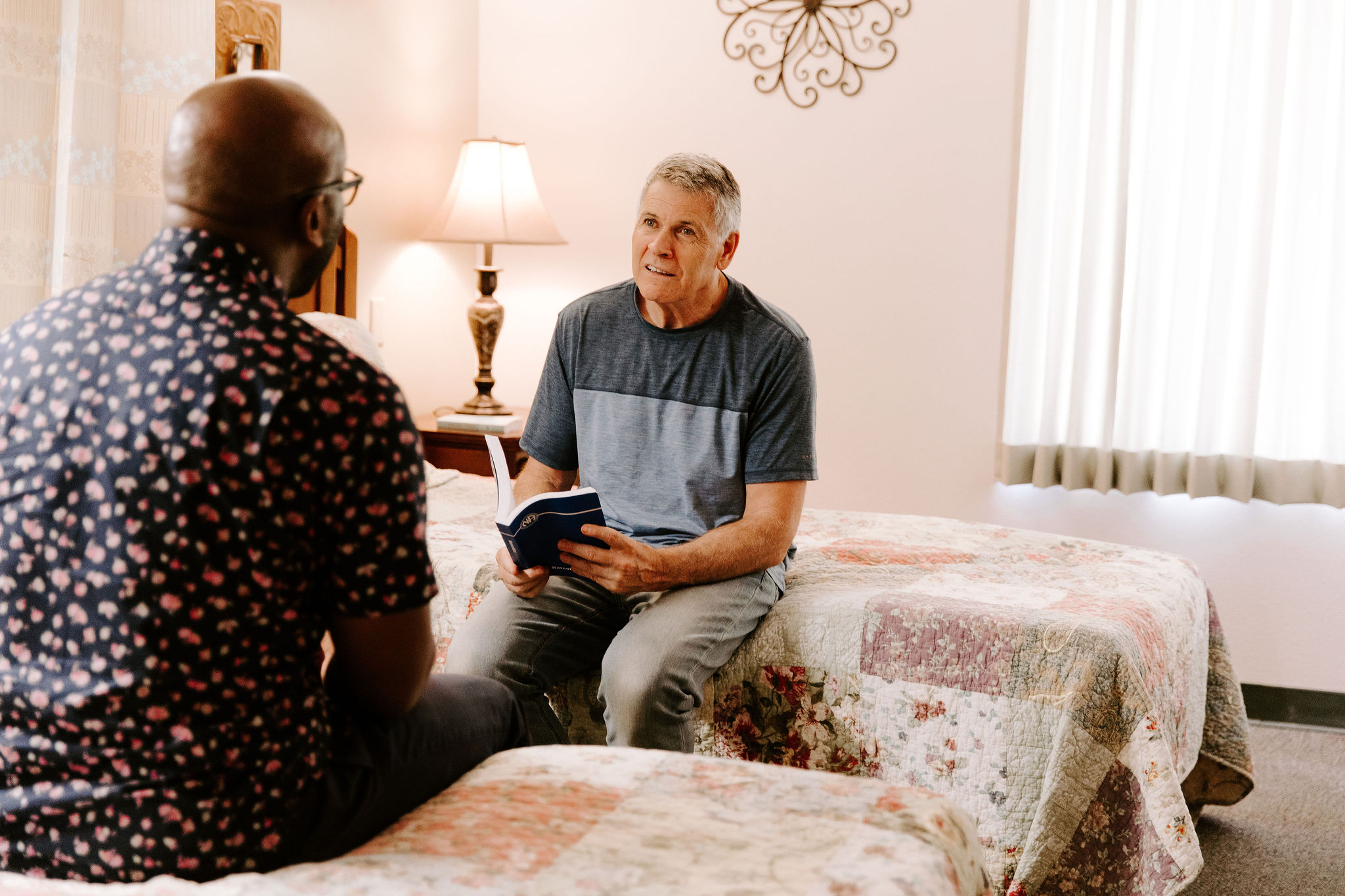Sadly, traumatic events are all too common. Some estimates suggest approximately 70% of American adults experience a severely traumatic event at least once in their life, and 20% of them will develop PTSD as a result. Older adults have lived through life-shaping experiences such as the Korean War, Vietnam War, Cold War and the AIDS epidemic, and the ripple effects may still be shaping your family today. How can you understand your parents’ or grandparents’ trauma, and why would it benefit you to get them to open up to you about it?
How Does Trauma Affect People?
Trauma can alter people’s brain structure and function, causing their bodies to continue producing excessive fight-or-flight hormones even in familiar and comfortable surroundings. They have trouble relaxing and self-soothing, and may startle at the slightest stimulus.
Characteristics of PTSD include the following.
- Flashbacks and uncontrollable thoughts: People with PTSD deal with unpredictable intrusive thoughts and flashbacks that force them to continue reliving the traumatic event.
- Avoidance: Because thinking about the traumatic event is so painful, people with PTSD typically change their lifestyle to avoid people, places and things that might remind them.
- Behavioral changes: Often, people with PTSD frighten easily and can react inappropriately to triggers that wouldn’t bother most people. They may be prone to emotional outbursts that seemingly come out of nowhere.
- Negativity: PTSD changes the way a person thinks. They could have more negative thoughts, have difficulty trusting others or feel extreme guilt, shame and anxiety.
Understanding Intergenerational Trauma
A leading hypothesis in developmental psychology is that traumatic events your relatives went through can affect your life, even if you did not experience them firsthand. The concept is that extreme distress can imprint on a person’s genes, which they can then pass on to future generations. If you have trauma symptoms, it’s worth taking a closer look at your family to determine whether the issues originated with them.
One of the challenges faced by baby boomers and other older generations is the heavy stigma around talking about mental health and other hardships. As a result, many older trauma survivors may have felt they needed to struggle in silence. You can start a conversation by asking open-ended questions such as “What were things like when you were growing up?” Be sure to give your relative your undivided attention, and enunciate if they are hard of hearing.
How Family Therapy Can Help You
Because familiarity is so comforting, many people instinctively repeat childhood patterns even when they’re aware they are doing unhealthy things. Children whose parents were neglectful, emotionally unavailable, anxious or depressed may repeat the cycle by ending up in abusive, unstable relationships as adults. Similarly, if you grew up seeing adults abuse alcohol and drugs as a coping mechanism, you might never have learned more productive ways to deal with complex emotions.
Family therapy guided by a trained counselor is essential to break the cycle, learn to let go of internalized negativity and ensure you don’t pass the harmful behaviors along to future generations. Healing from addiction and trauma can be a complex process, but with time and patience, you can create a healthier family dynamic.
At Hemet Valley Recovery Center and Sage Retreat, we have designed a program that helps educate family members about the disease of addiction so they can begin healing. Contact us today to learn more about our comprehensive treatment offerings.


